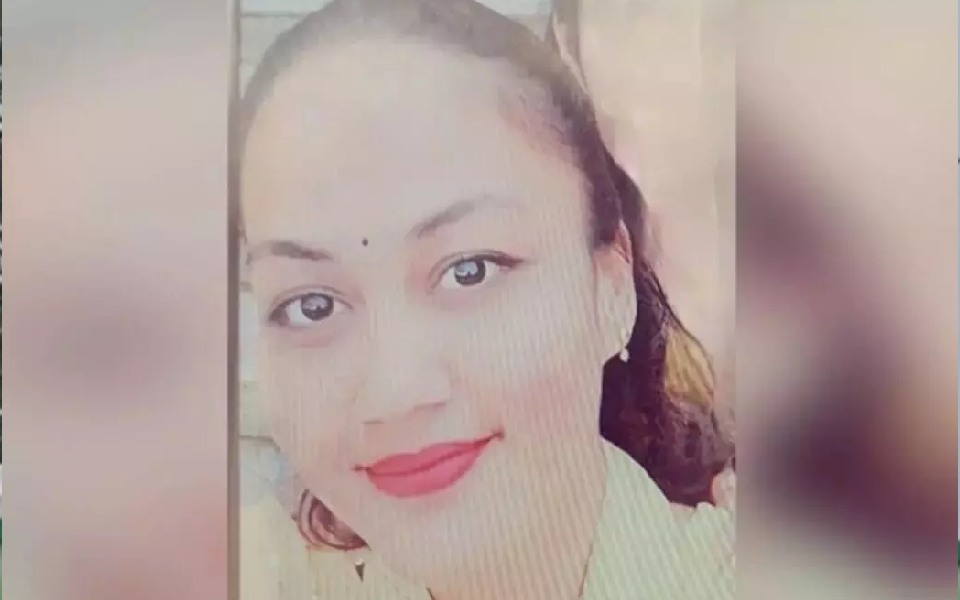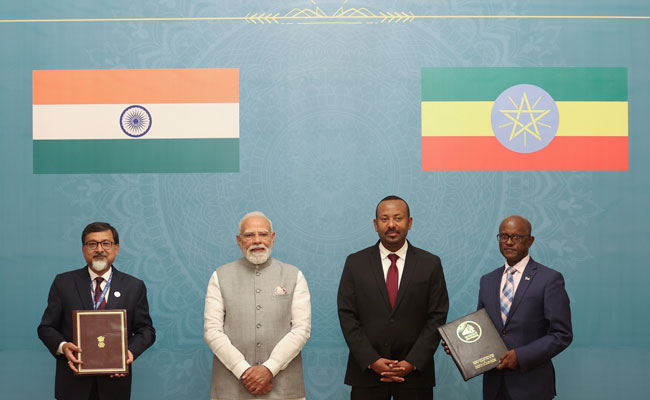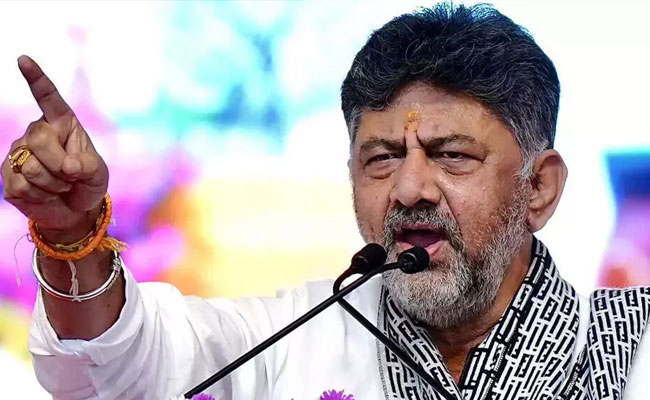Bengaluru: The discovery of the dismembered body of 29-year-old Mahalakshmi in her rented home in Bengaluru's Vyalikaval neighborhood on September 21 had shocked the city, sparking a wave of misinformation and communal propaganda. Mahalakshmi, who worked at a costume outlet in Malleshwaram, was found inside a refrigerator at her residence in Vinayaka Nagar, where she had been living alone after separating from her husband.
Following the discovery, social media platforms and several right-wing commentators began circulating unverified claims, suggesting that a man named Ashraf was responsible for Mahalakshmi's murder. These claims quickly spiraled into communal narratives, with some alleging that the incident was a case of ‘Love Jihad’ — a conspiracy theory propagated by certain groups, claiming that Muslim men engage in relationships with Hindu women with the intent of converting and harming them.
The narrative gained traction when Aman Chopra, a journalist with News 18 India, drew comparisons between Mahalakshmi's murder and the infamous Shraddha Walkar case from Delhi in 2022. Walkar was murdered by her live-in partner Aftab Poonawalla, who dismembered her body and stored it in a refrigerator. Chopra suggested a pattern of Muslim men killing their Hindu partners, despite the lack of evidence linking Ashraf to Mahalakshmi's murder.
Chopra's coverage, which aired during a news bulletin, emphasized the name "Ashraf," insinuating that the alleged murderer shared a similar background with Poonawalla. He shared a clip of his broadcast on X (formerly Twitter), writing, “Earlier it was Shraddha, this time it’s Mahalakshmi. The name has changed, the modus operandi is the same.” The narrative was further propagated by the official X handle of BJP Karnataka, which linked the incident to the state's law and order situation, blaming the Congress government’s alleged appeasement policies for the crime.
Radharamn Das, Vice-President and spokesperson of ISKCON Kolkata, also contributed to the misinformation, tweeting, “Another body of a Hindu girl found in Abdul’s fridge. This story will keep repeating, and those Hindu girls still with an Abdul will keep thinking, ‘My Abdul is different.’” His statement fueled communal sentiments, further deepening the communal divide.
Other right-wing influencers and platforms, including RSS mouthpiece Panchjanya, echoed similar claims, amplifying the narrative without verifying the facts. Influencers like @MrSinha_, Kajal Hindustani, Jaipur Dialogues, and lawyer Shashank Shekhar Jha, known for spreading communal propaganda, also joined in, focusing on the unsubstantiated involvement of Ashraf.
However, investigations by the Bengaluru Police have debunked these claims. According to police reports, Mahalakshmi was married to Hemant Das, a resident of Nelamangala who runs a mobile accessory shop. The couple had been married for six years and had a child together. However, due to marital issues, they had been living separately for nine months. After separating from Hemant, Mahalakshmi initially lived with her brother, Hukum Singh, and his wife. Following a dispute, her brother moved out, leaving Mahalakshmi to live alone.
The case took a significant turn when Mahalakshmi's estranged husband, Hemant, expressed suspicions about a man named Ashraf, who worked at a salon in Nelamangala. Hemant claimed that Mahalakshmi had been having an affair with Ashraf and had even filed a complaint against him a few months earlier at the Seshadripuram police station, accusing him of blackmail.
Despite these claims, the Bengaluru Police did not name Ashraf as the prime suspect. After interrogating him, the police found no substantial evidence linking him to the murder and subsequently released him. Instead, the police focused on another individual, identified as Muktirajan Pratap Ray, a colleague of Mahalakshmi.
On September 23, Bengaluru Police Commissioner B Dayananda announced that the prime suspect in the case had been identified, but withheld further details as the suspect was still at large. The case took a tragic turn when the suspect, Muktirajan Pratap Ray, was found dead by suicide in Odisha on September 25. His body was discovered hanging from a tree in Bhuinpur village in Bhadrak district.
Ray, who had been absconding since the discovery of Mahalakshmi’s body, had confessed to the murder in a suicide note found at the scene. According to Bhadrak Superintendent of Police Varun Guntupalli, Ray had been evading arrest and took his own life out of fear of being apprehended for the murder.
Investigations revealed that Ray and Mahalakshmi had been colleagues since 2023 and had been missing from work since September 1. Police traced Ray’s whereabouts to West Bengal, where he reportedly contacted his brother and confessed to the crime. Following his confession, Ray fled to his native village in Odisha, where he ultimately ended his life.
The Bengaluru Police have confirmed that the murder of Mahalakshmi was not a case of ‘Love Jihad’ and that the key accused, Muktirajan Pratap Ray, was not a Muslim. The baseless allegations propagated by several journalists, right-wing influencers, and media platforms have been proven false.
Mahalakshmi murder case | Odisha | SP Bhadrak, Varun Guntupalli says, " A team of Bangalore Police had come here to probe the recent murder of a woman there. The team said that the prime accused belonged to Bhadrak. Before the team could apprehend the accused, Mukthirajan died by… pic.twitter.com/RpRqBqpYXb
— ANI (@ANI) September 26, 2024
Let the Truth be known. If you read VB and like VB, please be a VB Supporter and Help us deliver the Truth to one and all.
Addis Ababa (PTI): India and Ethiopia on Tuesday elevated their historical ties to a strategic partnership, as Prime Minister Narendra Modi held wide-ranging talks with his Ethiopian counterpart Abiy Ahmed Ali during which they discussed issues of bilateral and mutual interest.
Modi, who arrived here from Jordan on his maiden bilateral visit, was accorded a ceremonial welcome at the National Palace ahead of the bilateral talks, reflecting the vibrant India-Ethiopia relations rooted in shared history and a promising future.
"We are elevating India and Ethiopia relations to a strategic partnership. This step will provide new energy, new momentum and new depth to our ties," Prime Minister Modi said during the delegation-level talks.
He thanked PM Ali for his support in India's fight against terrorism. "The support of friendly countries in this struggle against terrorism holds great significance," Modi said.
"Today, we got the opportunity to deliberate on the key aspects of our cooperation, such as economy, innovation, technology, defence, health, capacity-building and multilateral cooperation. I am pleased that today, we have decided to double the student scholarship for Ethiopia in India," Modi said.
Modi said that India and Ethiopia have shared contact, dialogue, and exchange for thousands of years. The two countries, which are rich in languages and traditions, are symbols of unity in diversity, he added.
"Both countries are democratic powers committed to peace and the welfare of humanity. We are co-travellers and partners of the Global South. On international platforms, we have stood shoulder-to-shoulder," he said.
The two sides signed eight MoUs/agreements, including upgrading ties to 'Strategic Partnership', customs cooperation, establishing data center at the Ethiopian Foreign Ministry, UN Peacekeeping training cooperation, debt restructuring under G20, more ICCR scholarships and AI short courses for Ethiopians, and support for maternal and neonatal healthcare.
Modi said the African Union's headquarters in Ethiopia makes the country a meeting point of African diplomacy. "Inspired by the common vision of an inclusive world, in 2023, India ensured that the African Union became a G20 member," he said.
In 2023, during India’s G20 Presidency, the African Union was admitted as a permanent member of the G20.
Modi said that though this is his first visit, he felt a deep sense of belonging and warmth, reflecting the thousands of years of connection between the two countries.
On his part, Prime Minister Ali said the two countries share over thousands of years of connection through trade, diplomacy, education, culture and even in our food and traditions. "These ties continue to shape a deep friendship, collaboration and mutual respect between our people," he said.
"We also appreciate your consistent message that Africa's priorities must lead the partnership. These kinds of dignified, respectful messages for Africa are very important. Mr Prime Minister, keep pushing. That is the type of message we are expecting from all our trusted friends," Ali said.
He said this aligned fully with Ethiopia's development plan - African-owned, African-led, and African-defined.
"Today, we meet with a clear focus to shape a modern partnership, grounded in sovereignty, self-reliance and practical cooperation. Our cooperation is rooted in equality and South-South solidarity," he said.
"Our economy is performing strongly. Last year, we grew 9.2% and this year we are expecting 10.3% GDP growth. Besides GDP growth, our FDI inflow is also rising big time. India is the leading source for our FDI," he said.
"We have more than 615 Indian companies which are investing in Ethiopia. This all gives our cooperation a strong foundation of trust. I think our decision today that we elevate our historic relationship to a strategic relationship is the right decision," he added.
Ethiopia also conferred its highest award - The Great Honour Nishan of Ethiopia - on PM Modi. He is the first global head of state to receive this award.
Prime Minister Modi also went to the Friendship Park and Friendship Square in Addis Ababa with PM Ali.
In a warm and special gesture, PM Modi was earlier received by his Ethiopian counterpart at the airport and accorded a warm and colourful welcome.
"Ethiopia is a nation with great history and vibrant culture," Modi said.
PM Ali informed his Indian counterpart about the varieties of Ethiopian coffee during informal talks.
"At Addis Ababa airport, took part in a traditional Coffee Ceremony with Prime Minister Abiy Ahmed Ali. The ceremony beautifully highlights Ethiopia’s rich heritage," Modi said.
In a unique gesture, the Ethiopian Prime Minister drove Modi to the hotel.
On the way, he took a special initiative of taking PM Modi to the Science Museum and Friendship Park, which was not in the itinerary.
"Gratitude to Prime Minister Abiy Ahmed Ali for showing me glimpses of Ethiopian history and culture at the National Palace Museum in Addis Ababa. It was a powerful reminder of Ethiopia’s rich traditions," Modi said in a post on X.
The Nobel Peace Prize-winning Ethiopian PM’s special gestures show remarkable respect for Modi, sources said.
"Thank you Ethiopia for a welcome that was unforgettable. The Indian community showed remarkable warmth and affection. India-Ethiopia friendship is going to get even more robust in the times to come," Modi said.
When Modi arrived at the hotel, he was warmly welcomed by the members of the Indian community. Local artists performed dances. Some of them danced on the theme of the popular Hindi song 'Aisa Des Hai Mera' to welcome him.
On Wednesday, Modi will address the Joint Session of Parliament and share his thoughts on India's journey as the "Mother of Democracy" and the value that the India-Ethiopia partnership can bring to the Global South.
PM Modi arrived in Ethiopia from Jordan, where he held a one-on-one meeting with King Abdullah II at the Husseiniya Palace on Monday before the delegation-level talks.
India and Jordan also inked MoUs in the fields of culture, renewable energy, water management, digital public infrastructure and twinning arrangement between Petra and Ellora, aimed at giving a major boost to bilateral ties and friendship.
From Ethiopia, Modi will visit Oman on the final leg of this three-nation tour.





